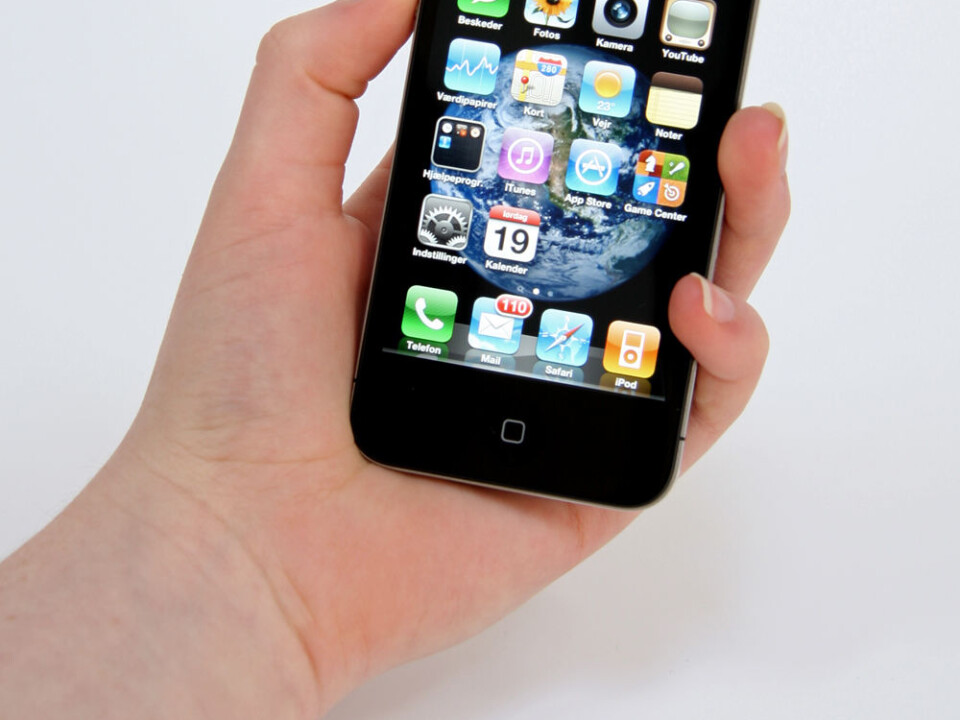
Use your bedroom for sleep and sex only
We have grown more prone to going to bed with technological sleep thieves. But use of mobile phones and PCs at bedtime links to poor sleeping habits.
Denne artikkelen er over ti år gammel og kan inneholde utdatert informasjon.
The use of a PC or cell phone in the bedroom links clearly together with what is called a delayed circadian rhythm, according to new study recently published in the Journal of Sleep Research.
"This condition leads to a lack of sleep on weekdays, which makes you less rested and fit during daytime and impairs your ability to learn," explains professor and sleep researcher Ståle Pallesen.
The study was done by a group of researchers at the University of Bergen (UiB) and the National Competence Centre for Sleep Disorders.
Later bedtime

The study shows that persons who often use active media such as phones and computers in the bedroom generally sleep later in the evening and rise later in the morning.
“The result of this is usually a large variation between bedtime on weekdays and the weekends, which in turn makes it harder to fall asleep early on the upcoming weekdays,” says Pallesen.
The professor is not at all in favour of the use of cell phones and PCs in the bedroom.
“I think the bedroom should be reserved for sleep and sexual activity. However, many use it for working, eating, etc,” says Pallesen.

He thinks that if you engage in these and other waking-hour activities over an extended period, in a while you will be linking the bedroom to activating stimuli. Instead of triggering sleep it will be associated with alertness and activation.
Concerned about bedroom use
In the new study a representative selection of 816 Norwegians aged 16-40 responded to questions about their use of media in the bedroom.
The researchers are particularly concerned about the trend in which adolescents take their mobiles, PCs or web tablets to bed.
Young people are the group that get the least sleep compared to their actual requirements, and at the same time they are very active users of the new media.
“They don’t bother to silence their phones in the bedroom. They use them actively before going to sleep and are interrupted by test messages or calls after falling asleep,” says Pallesen.
Detrimental for school performance
Several studies of communications technology and sleep problems have shown that such electronic gadgets in bed have a negative impact on sleep, particularly among young persons.
“As sleep researchers we don’t want to moralize – that’s not the point. But there’s no doubt that going to bed with a mobile or PC is unfavourable," says Pallesen.
Youth are in a very important phase for learning and at the same time they have a great need of sleep.
“So these digital sleep thieves can really have a destructive impact on their school performances,” asserts Pallesen.
Trying to make up for a lack of sleep
Many try to compensate by sleeping more on weekends but this can be hard to do.
“Studies show that even if you might feel rested after sleeping more on weekends, your stamina for tackling another round of sleep deprivation will be weaker,” says Pallesen.
Use of game consoles showed no negative effect on sleeping patterns in this context but Pallesen thinks this was because so few played with them in their bedrooms.
The researchers also found that watching TV or listening to music had no negative effect on sleeping habits.
The study was made before the use of PC tablets began to soar.
———————————————————————————-
Read the article in Norwegian at forskning.no
Translated by: Glenn Ostling






























